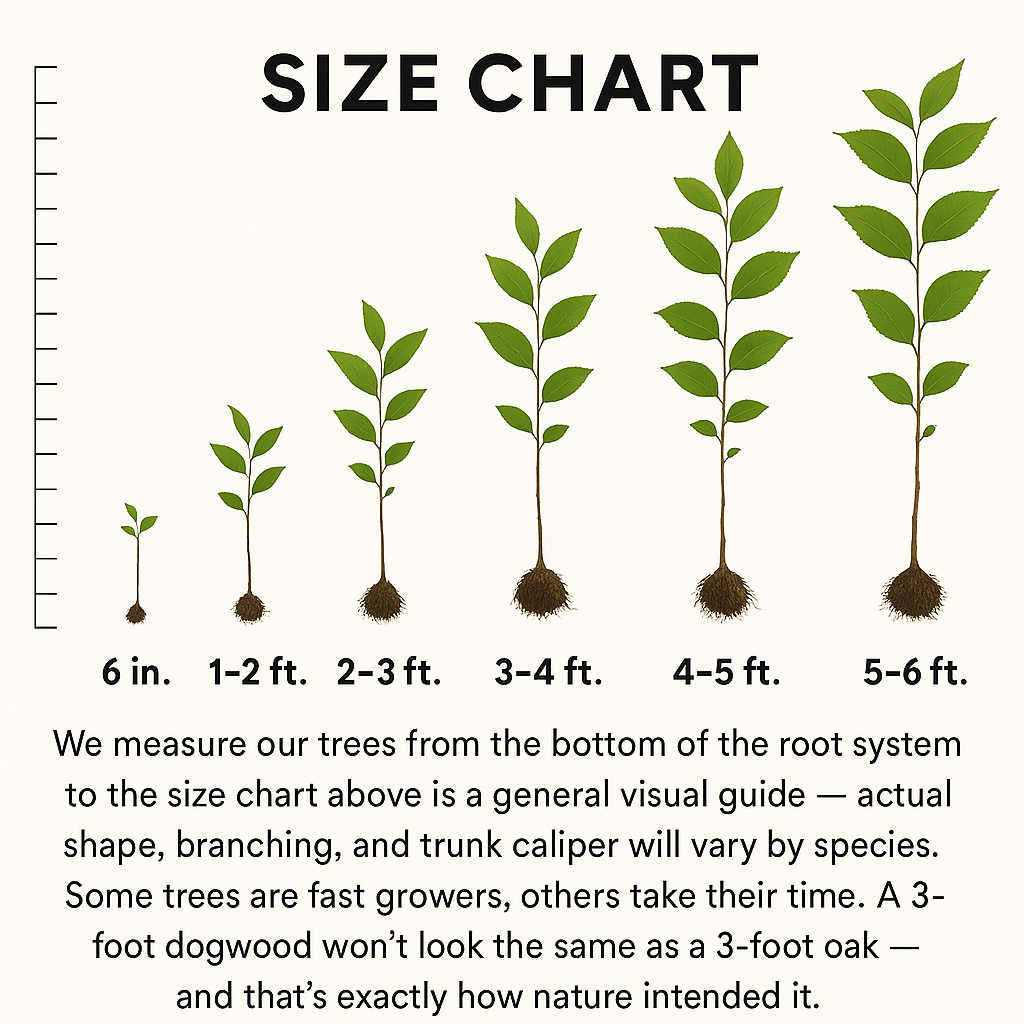Limited Quantities - Reserve Now For Fall
Bartlett Pear Tree
Bartlett Pear Tree
Couldn't load pickup availability
Pyrus communis ‘Bartlett’
Bartlett Pear Tree
The Bartlett Pear Tree is a classic heirloom fruit tree renowned for its sweet, juicy pears and heavy, reliable harvests. Known for its buttery texture and rich flavor, Bartlett is the gold standard for fresh eating, canning, and preserving—making it a top choice for home gardeners and orchardists alike.
With stunning white spring blossoms, vigorous growth, and dependable performance, the Bartlett Pear Tree is perfect for edible landscapes, backyard orchards, and pollinator gardens.
Bartlett Pear Tree Overview
| Attribute | Details |
|---|---|
| 🌿 Botanical Name | Pyrus communis ‘Bartlett’ |
| 🏷️ Common Names | Bartlett Pear, Williams’ Bon Chrétien Pear |
| 🌳 Mature Height | 15–20 feet (semi-dwarf); 10–12 feet (dwarf) |
| 🌐 Mature Width | 10–15 feet |
| 📈 Growth Rate | Moderate (1–2 feet per year) |
| ⏳ Lifespan | 50–75 years |
| 🧊 USDA Zones | 5–8 |
| ❄️ Chill Hours | 800–1,000 hours |
| ☀️ Sun Preference | Full sun (required for fruit sweetness and production) |
| 🧱 Soil Type | Well-drained loam, sandy, or clay soils |
| ⚖️ Soil pH | Slightly acidic to neutral (6.0–7.0) |
| 💧 Water Needs | Moderate; prefers regular deep watering |
| 🍐 Fruit Type | Medium to large yellow pears with sweet, juicy flesh |
| 🌸 Flower Color | White; blooms in early to mid-spring |
| 🐝 Pollination | Requires a pollinator (pair with Anjou, Bosc, or Moonglow) |
| 🌿 Growth Habit | Upright, rounded canopy |
| ↔️ Spacing | 12–15 ft (semi-dwarf); 8–10 ft (dwarf) |
| 🏡 Landscape Uses | Home orchards, edible borders, mixed fruit gardens |
| 🧹 Maintenance Level | Moderate |
Environmental Benefits
🌸 Provides spring blooms for bees and early pollinators
🍐 Encourages backyard food production and edible sustainability
🌿 Adds structure, shade, and visual interest throughout the seasons
🪶 Produces fall fruit that attracts wildlife and birds
Pros & Cons
| ✅ Pros | ⚠️ Cons |
|---|---|
| 🍐 Sweet, juicy pears perfect for fresh eating and preserving | 🐝 Requires a compatible pollinator to set fruit |
| 🌸 Beautiful spring blooms and consistent fruiting habit | 💧 Needs consistent watering during dry or hot spells |
| 🏡 Compact enough for small orchards and edible yards | ✂️ Requires annual pruning to maintain shape and maximize yield |
| 🧬 Long-lived and time-tested variety | 🌾 Fruit may bruise if overripe or left unharvested too long |
| 🌞 Thrives in full sun and adapts to various soil types | 🐛 Can be vulnerable to fire blight and common pear pests |
Planting & Care Guide
🛁 Water deeply before and after planting; maintain moisture evenly
🕳️ Dig a hole twice as wide as the root mass; keep graft union 2 inches above soil
🌾 Mulch 2–3 inches around base to retain moisture and suppress weeds
💦 Water weekly during the first season and during fruit development
✂️ Prune in winter to shape canopy and improve air circulation
🧪 Fertilize in early spring with a balanced fruit tree fertilizer
The Bartlett Pear Tree is a time-honored fruiting favorite, delivering abundant, delicious pears and spring beauty in one compact, manageable tree. Whether you’re canning, snacking, or building a family orchard, Bartlett offers flavor, productivity, and heritage value for seasons to come.
Share






